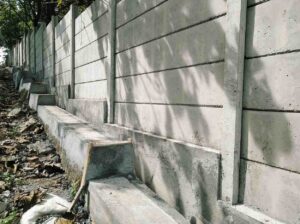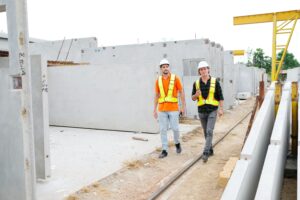What is Construction Management?
Construction management is a professional service that uses specialized project management techniques to oversee the planning, design, and construction of a project, from its beginning to its end. The purpose is to control a project’s time, cost, and quality—often referred to as a project’s “triple constraint.”
What is The Difference Between Construction Management and Project Management?
While both fields involve overseeing projects, construction management specifically focuses on construction projects. Unlike general project management, which can apply to any sector, it requires specific knowledge of construction processes, methods, and technologies.
The Functions of Construction Management
The key functions include:
- Project Planning: Detailed blueprinting of the process, resources, and timelines.
- Cost Management: Budgeting and cost control to minimize expenses without sacrificing quality.
- Quality Management: Ensuring that the construction meets or exceeds all agreed standards.
- Contract Administration: Managing contracts between all parties involved in the construction process.
- Safety Management: Implementing protocols to maintain workplace safety.
Construction Management Benefits

Effective offers significant benefits:
- Enhanced Efficiency: Streamlines the construction process, reducing waste and increasing productivity.
- Improved Risk Management: Identifies and mitigates potential risks early in the project.
- Better Communication: Facilitates clear and consistent communication among all stakeholders.
- Increased Client Satisfaction: Ensures the project meets client specifications and expectations.
Phases of Construction Management
The phases are:
- Conceptualization: Understanding project scope and objectives.
- Design: Detailed and technical planning of the project.
- Procurement: Sourcing materials and hiring labor.
- Construction: Actual building process.
- Commissioning: Handing over the project to the client after ensuring all systems function correctly.
Systems and Tools
Key systems and tools include:
- Task Scheduling Systems: Such as Gantt charts and network diagrams.
- Cost Estimation Tools: Software and spreadsheets for accurate budgeting.
- Resource Allocation Tools: Systems to ensure efficient use of materials and labor.
Construction Management Software
Modern construction projects often leverage software for enhanced management capabilities. These tools offer features for:
- Project Tracking: Real-time updates on project progress.
- Collaboration: Tools for improving team communication.
- Documentation: Managing files and project documentation in a centralized database.
Conclusion
At InfraBlock, we understand that every construction project is unique. That’s why we offer a diverse range of products like our Dot Design Faced Blocks, Counterweight / Tie Down Blocks, and Smooth Large Interlocking Blocks, crafted to support a variety of construction needs. Whether you are tackling a small residential build or a large-scale commercial venture, our products ensure that your project is equipped with the right materials for both functionality and aesthetics. Are you ready to enhance your next construction project with InfraBlock’s reliable solutions? Contact us today to learn more about how we can assist you in achieving your project goals.




